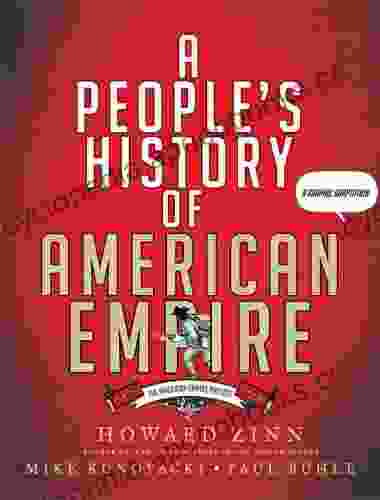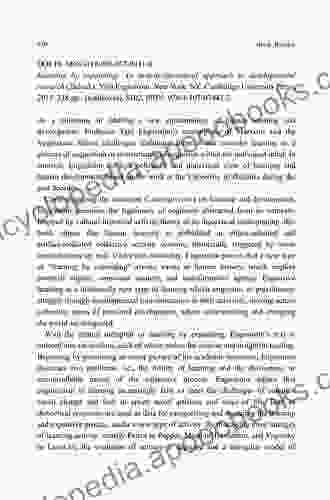An Activity Theoretical Approach to Developmental Research: Unlocking the Transformative Power

Delving into the Foundations of Activity Theory
Activity theory, a cornerstone of cultural-historical psychology, provides a profound lens through which to comprehend human development and its inextricable link to sociocultural contexts. Spearheaded by the seminal work of Lev Vygotsky, activity theory conceptualizes human activity as a purposeful, goal-directed process that is fundamentally social and culturally situated.
At the heart of activity theory lies the notion that human beings engage in activities to meet their needs and desires within specific sociocultural contexts. These activities are not isolated acts but rather complex systems that involve interactions between individuals, tools, objects, and rules. By carefully examining the interplay between these elements, researchers can gain valuable insights into the developmental processes that shape human cognition, behavior, and identity.
4.3 out of 5
| Language | : | English |
| File size | : | 2002 KB |
| Text-to-Speech | : | Enabled |
| Screen Reader | : | Supported |
| Enhanced typesetting | : | Enabled |
| Word Wise | : | Enabled |
| Print length | : | 337 pages |
A Holistic Framework for Understanding Development
An activity theoretical approach to developmental research offers a holistic framework that encompasses multiple levels of analysis, from the individual to the societal. It recognizes that development is not a linear, predetermined process but rather a dynamic, ongoing interaction between individuals and their environments. This approach allows researchers to explore the ways in which sociocultural factors, such as cultural practices, societal norms, and economic conditions, influence individual development.
By focusing on the activities in which individuals engage, researchers can identify the opportunities and constraints that shape developmental trajectories. This approach sheds light on how individuals construct knowledge, develop skills, and form identities within the contexts of their daily lives. It also highlights the significance of social interactions and collaborative activities in fostering cognitive and social development.
Methodological Implications for Developmental Research
Adopting an activity theoretical approach to developmental research has significant implications for methodological practices. Researchers are encouraged to employ qualitative methods that allow for in-depth exploration of activities and their sociocultural contexts. These methods include participant observation, interviews, and document analysis.
Researchers must also adopt a longitudinal perspective, following participants over time to capture the dynamic and evolving nature of developmental processes. This approach enables researchers to trace changes in activities, interactions, and sociocultural contexts, providing a comprehensive understanding of how these factors shape development over the course of time.
Applications Across Diverse Developmental Domains
The transformative power of activity theory extends to a wide range of developmental domains, including:
- Cognitive development: Activity theory provides a framework for understanding how cognitive processes, such as problem-solving, reasoning, and memory, are shaped by social interactions and cultural tools.
- Social development: This approach illuminates the role of social interactions and collaborative activities in fostering social competence, empathy, and moral development.
- Identity development: Activity theory highlights the ways in which individuals construct and negotiate their identities within sociocultural contexts, exploring the influence of social norms, cultural values, and personal experiences.
- Educational development: By examining the activities and interactions that occur within educational settings, researchers can gain insights into how students learn, develop intellectually, and navigate the challenges of formal education.
: Empowering Groundbreaking Research
'An Activity Theoretical Approach to Developmental Research' empowers researchers with a comprehensive guide to harnessing the transformative power of activity theory. This approach transcends traditional boundaries, offering a sophisticated framework for understanding the complexities of human development. By embracing its principles and methodological implications, researchers can unlock groundbreaking insights into the dynamic interplay between individuals and their sociocultural contexts, ultimately advancing our knowledge of human development and its implications for education, social policy, and beyond.
4.3 out of 5
| Language | : | English |
| File size | : | 2002 KB |
| Text-to-Speech | : | Enabled |
| Screen Reader | : | Supported |
| Enhanced typesetting | : | Enabled |
| Word Wise | : | Enabled |
| Print length | : | 337 pages |
Do you want to contribute by writing guest posts on this blog?
Please contact us and send us a resume of previous articles that you have written.
 Book
Book Novel
Novel Page
Page Chapter
Chapter Text
Text Story
Story Genre
Genre Reader
Reader Library
Library Paperback
Paperback E-book
E-book Magazine
Magazine Newspaper
Newspaper Paragraph
Paragraph Sentence
Sentence Bookmark
Bookmark Shelf
Shelf Glossary
Glossary Bibliography
Bibliography Foreword
Foreword Preface
Preface Synopsis
Synopsis Annotation
Annotation Footnote
Footnote Manuscript
Manuscript Scroll
Scroll Codex
Codex Tome
Tome Bestseller
Bestseller Classics
Classics Library card
Library card Narrative
Narrative Biography
Biography Autobiography
Autobiography Memoir
Memoir Reference
Reference Encyclopedia
Encyclopedia Daphne Carr
Daphne Carr Kassandra Lea
Kassandra Lea William Blake
William Blake Gerard Delanty
Gerard Delanty Paul Spoonley
Paul SpoonleyA G
 Reem Bassiouney
Reem Bassiouney Jean Marc Martin
Jean Marc Martin Paul R Gregory
Paul R Gregory Stephanie Schriock
Stephanie Schriock Ted Slupik
Ted Slupik Noel Hankin
Noel Hankin Sarah A Denzil
Sarah A Denzil George Tsakraklides
George Tsakraklides Howexpert Press
Howexpert Press Mike Proctor
Mike Proctor Pam Backlund
Pam Backlund David L Harrison
David L Harrison Gretta Curran Browne
Gretta Curran Browne 42nd Edition Kindle Edition
42nd Edition Kindle Edition
Light bulbAdvertise smarter! Our strategic ad space ensures maximum exposure. Reserve your spot today!

 Virginia WoolfEmpowering the Chronically Ill: Unveiling Working Bodies in the Canadian...
Virginia WoolfEmpowering the Chronically Ill: Unveiling Working Bodies in the Canadian...
 Leon FosterUnveiling the Hidden Truths: Dive into "The American Empire Project Graphic...
Leon FosterUnveiling the Hidden Truths: Dive into "The American Empire Project Graphic... Denzel HayesFollow ·7.9k
Denzel HayesFollow ·7.9k Dalton FosterFollow ·5.2k
Dalton FosterFollow ·5.2k Nathaniel PowellFollow ·11.4k
Nathaniel PowellFollow ·11.4k Ernest J. GainesFollow ·6.5k
Ernest J. GainesFollow ·6.5k Beau CarterFollow ·13.7k
Beau CarterFollow ·13.7k Miguel NelsonFollow ·8.2k
Miguel NelsonFollow ·8.2k Oscar WildeFollow ·13.1k
Oscar WildeFollow ·13.1k Gene SimmonsFollow ·12k
Gene SimmonsFollow ·12k

 Jacob Hayes
Jacob HayesUnlock the Power of Microsoft Word: A Comprehensive Guide...
Microsoft Word is a widely used word...

 Hunter Mitchell
Hunter MitchellAndrea Carter and the Price of Truth: A Thrilling...
Get ready for an unforgettable...

 Ivan Turner
Ivan TurnerTrading Jeff and His Dog: An Unforgettable Adventure of...
Get ready for an emotional rollercoaster...

 Langston Hughes
Langston HughesGo Viral TikTok: The Ultimate Guide to Gaining 100K...
TikTok has emerged as a social...

 Ibrahim Blair
Ibrahim BlairUnveil the Enchanting Realm of Short Fiction: Dive into...
Delve into a Literary Tapestry of...

 Tennessee Williams
Tennessee WilliamsUnveil the Enchanting World of Elizabeth Barrett...
A Poetic Tapestry of Love, Loss, and...
4.3 out of 5
| Language | : | English |
| File size | : | 2002 KB |
| Text-to-Speech | : | Enabled |
| Screen Reader | : | Supported |
| Enhanced typesetting | : | Enabled |
| Word Wise | : | Enabled |
| Print length | : | 337 pages |








